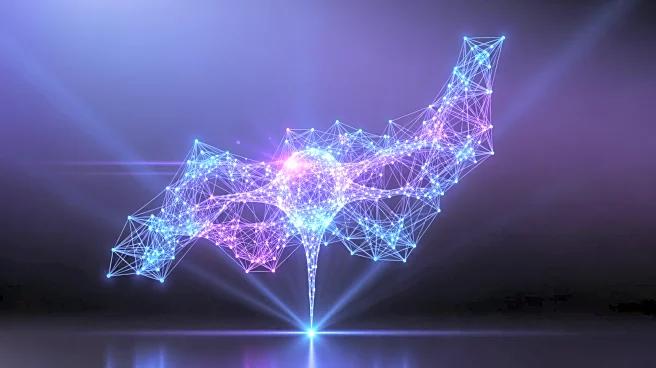What's Happening?
OpenAI's Sora, a deepfake video platform, has demonstrated the challenges in detecting AI-generated content on social media platforms like TikTok. A viral video on TikTok, created using Sora, shows a man
catching a baby falling from a window, raising questions about its authenticity. Despite the presence of C2PA metadata, which is supposed to identify AI-generated content, platforms like TikTok and YouTube have not effectively flagged such content. The Coalition for Content Provenance and Authenticity (C2PA), which includes members like Adobe and OpenAI, aims to attach verifiable metadata to digital content to distinguish real from fake. However, the adoption and visibility of these markers remain limited, leading to widespread misinformation.
Why It's Important?
The inability to effectively detect and label deepfake content poses significant risks to public trust and safety. As AI-generated videos become more convincing, the potential for misinformation and manipulation increases, affecting industries such as media, politics, and public safety. Platforms like TikTok and YouTube, which have massive user bases, are under pressure to implement more robust detection and labeling systems. The failure to do so could lead to increased regulatory scrutiny and a loss of user trust. The situation underscores the need for improved technological solutions and industry-wide cooperation to address the challenges posed by deepfakes.
What's Next?
The industry is likely to see increased efforts to enhance the visibility and effectiveness of AI content labeling systems like C2PA. Companies involved in the coalition may push for broader adoption and clearer labeling practices. Additionally, there may be legislative efforts to mandate transparency in AI-generated content, potentially leading to new regulations. Stakeholders, including tech companies and policymakers, will need to collaborate to develop comprehensive solutions that balance innovation with the need for authenticity and trust.
Beyond the Headlines
The ethical implications of deepfake technology are profound, as it challenges the very nature of truth and authenticity in digital media. The technology's misuse can lead to reputational damage, privacy violations, and even threats to national security. As AI continues to evolve, society must grapple with the moral responsibilities of creators and platforms in preventing harm while fostering innovation.










